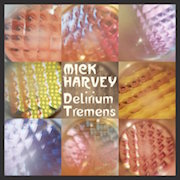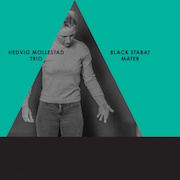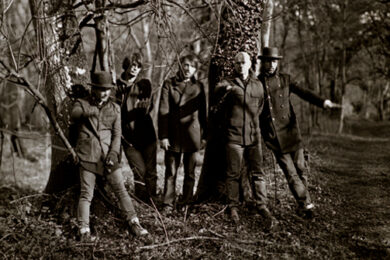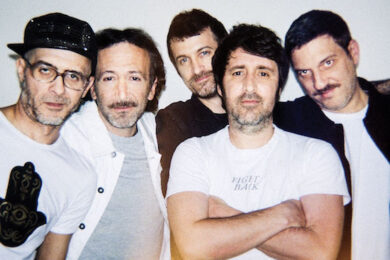Mick Harvey isn’t finished with Serge Gainsbourg yet. The Australian musician wrestled with the Frenchman’s back catalogue for the first time in 1995 with Intoxicated Man, and then again in 1997 with Pink Elephants. Now here he is with the third volume, Delirium Tremens (better known as the DTs, or alcoholic shakes), and we’re told to expect a fourth come the end of the year, which, one assumes, will continue the now rich tradition of bibulous nomenclature.
By the end of 2016 that’ll be nearly sixty covers that we know about, all of one man’s oeuvre. Four volumes is quite a body of work, that, lest we forget, is four times more studio albums than the Sex Pistols managed. What must it feel like to spend such an exhaustive amount of time as the conduit for another? Perhaps Harvey has an insight into how William Roache feels having played Ken Barlow all these years.
We’re told to never criticise a man until we’ve walked a mile in his moccasins; well Harvey has run a marathon in Serge’s frayed espadrilles and must have a better idea than most how his musical brain works. And yet, Gainsbourg’s back catalogue is so diverse, so clever and so full of surprises, that it makes it improbable that another person could fully comprehend or even second guess a genius. Yes, a genius, a proper one of those. Serge I mean. Perhaps this is one of the reasons Harvey keeps coming back for more.
“The whole project has just been enormous fun to be honest,” he said, which is as good a reason as any to embark on an undertaking like this one (and God knows there are enough artists making records and not having fun). “Many of the songs I have recorded are ones I had hoped to translate the first time I approached this material but I just thought they would be ones that were too hard to translate. But once I sunk my teeth into the task I found they were no more problematic than most of the songs from the first two albums.”
It is the choices that are perhaps the most interesting things about this new volume. Kicking off with the prog absurdity of ‘The Man With The Cabbage Head’ (‘L’Homme à tête de chou’) – taken from the concept album of the same name where the protagonist goes mad in a hotel and beats a woman to death with a fire extinguisher – it’s a fine marker ahead of a whip through some of Gainsbourg’s more obscure (but no less great) moments from his three decades as a recording artist. And as a writer for others too.
‘Chanson Du Forçat’ for instance – called ‘The Convict’s Song’ here – is taken from the soundtrack of La Pacha recorded with Michel Colombier; grill most Gainsbourg aficionados, and they’re unlikely to mention it among their favourites. ‘I Envisage’ (‘J’envisage’) written with Alain Bashung, is another track even the most devoted Gainsbourg fan might not know (I have to hold my hand up here). ‘A Violent Poison (That’s What Love Is)’ (‘Un Poison Violent C’est Ça L’amour’) comes from the motion picture soundtrack for Anna – Serge’s lesser known seventh album that fell between Percussions and Initials B.B.. Even a Gainsbourg geek will find it hard to keep up here, and while these kinds of tribute collections are often a fine way to introduce newcomers to the music of another, Delirium Tremens actually throws the gauntlet down to connoisseurs and challenges them to up their game.
The other great thing about this collection is there’s a rambunctiousness and an anarchy in the way they’re recorded. Where he might have approached previous sacre monstres more gingerly in the 90s, here there is an energy that comes from the confidence of experience. In that sense, Harvey makes each song here his own. The only disappointment is the hymnal take on ‘The Decadence’ (‘La décadanse’), that entirely dilutes the eroticism of the original. Eleven great tracks out of twelves is a handsome return though, and the listener must surely delight in the fact that Harvey isn’t done with Gainsbourg just yet. And after some of the gems he’s uncovered here, some of us are far from finished with him yet either.


















